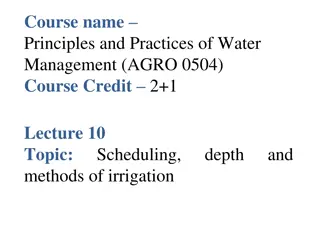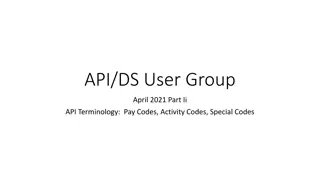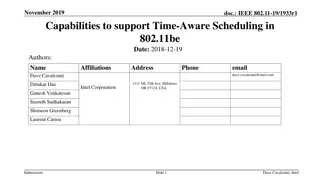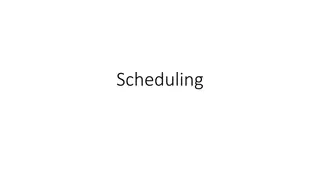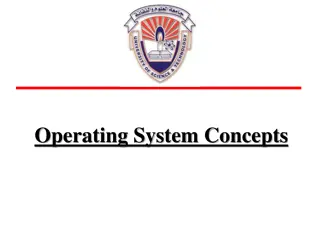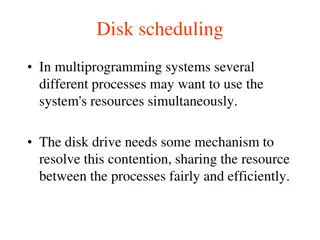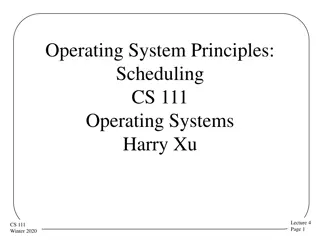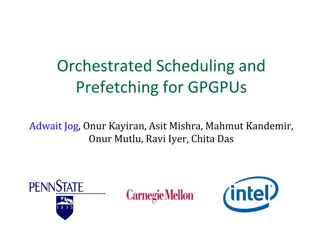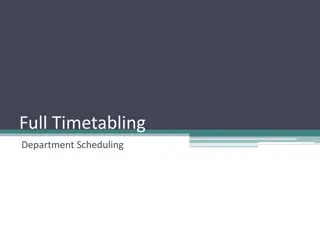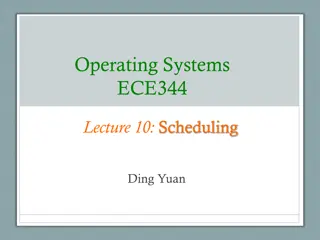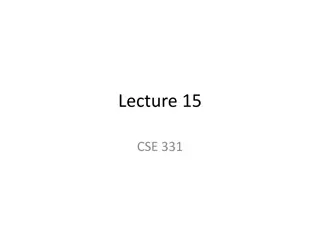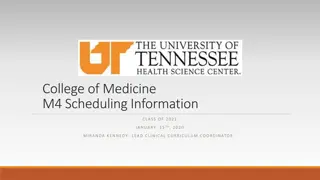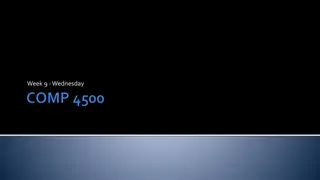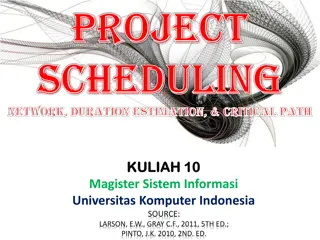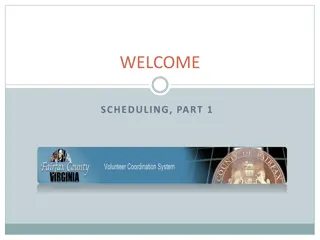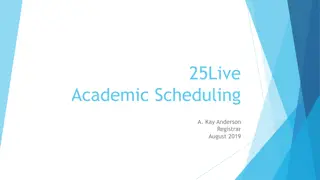Scheduling Terminology and Concepts in MyEdBC
Explore the key terminology and concepts related to scheduling in MyEdBC, including the Build view, scenarios, flat and rotated schedules, patterns, and base terms. Get insights into setting up scheduling structures and preferences, as well as managing course requests and staff information. Enhance your understanding of scheduling processes from start to finish in a school environment.
Download Presentation

Please find below an Image/Link to download the presentation.
The content on the website is provided AS IS for your information and personal use only. It may not be sold, licensed, or shared on other websites without obtaining consent from the author.If you encounter any issues during the download, it is possible that the publisher has removed the file from their server.
You are allowed to download the files provided on this website for personal or commercial use, subject to the condition that they are used lawfully. All files are the property of their respective owners.
The content on the website is provided AS IS for your information and personal use only. It may not be sold, licensed, or shared on other websites without obtaining consent from the author.
E N D
Presentation Transcript
Scheduling Terminology and Concepts
Objectives Introduce the MyEducation BC Build view and layout Provide an overview of scheduling terminology and concepts in MyEdBC Walk through scheduling a school from start to finish
Build view Build view What is it? The view to manage and define parameters of the coming year s schedule. The Build view contains the components of Students Course Requests as well as Staff, Course and Room scheduling information. It is also the area in which a school goes through the build process of creating their Master Timetable
Scenario Scenarios are different versions of a school s Master Timetable. Multiple scenarios can be created by one or more individuals and more than one person can work on a given scenario as you progress through the build process. Scenario Preferences define what you want the system to consider when building the schedule within this scenario. Set up the Structure of this scenario including Terms, Days, Periods and Rotations.
Terminology Flat Schedules Most high schools build a Flat schedule as represented on a scheduling board Rotated Schedule After a schedule is built, it is often Rotated so the order in which periods are offered differs by date (some middle schools build a Rotated schedule on their board)
Terminology Patterns represent all of the different ways course sections can meet Pattern Sets grouping of patterns that can be applied to courses
Terminology Base Terms How often can a course start in a school year: Full Year courses = 1; Semester courses = 2; Quarter courses = 4. Cover Terms How many Base Terms will sections of this course cover: Full Year courses = 1; Semester courses = 1; Quarter courses = 1 Base & Cover terms Can be thought of as a fraction (Cover over Base) They are how the Build engine determines the Schedule Term: Cover =1/Base=1 therefore the Schedule Term is Full Year; Cover=1/Base=2 therefore the Schedule Term is Semester; Cover=1/Base=4 therefore the Schedule Term is Quarters.
Concepts Rules used to alert the system to any constraints it must follow when building the master schedule. Examples: A school may want to ensure Full Year courses are backed appropriately so that Section 01 of Math 10 is on Day 1 Period 1 and Section 01 of PE 10 is on Day 2 Period 1. Another rule may be created for elective wheels, where students must stay together as a cohort group while they complete 4 courses.
Concepts Build the process of placing course sections in a Term, Period & Day and a Room. Load the process of placing students into course sections. Note: In MyEd students are Loaded into each Scenario.
Concepts Scheduling attributes Setting of staff, courses, students and rooms that are used by the Build and Load engines House, Team, Platoon and Section type Different ways of grouping students together.
Scheduling Modules Information on topics is grouped into 11 sequential modules. MODULE 1 TERMS AND CONCEPTS MODULE 2 COURSE CATALOGUES, STUDENT AND STAFF SETUP MODULE 3 SCENARIOS, PREFERENCES AND TIME STRUCTURE MODULE 4 STUDENT COURSE REQUESTS MODULE 5 ONLINE STUDENT COURSE REQUESTS MODULE 6A ROTATIONS, PATTERN LIBRARY AND PATTERN SETS MODULE 6B SCHEDULING ATTRIBUTES MODULE 7 RULES MODULE 8 WORKSPACE AND BUILD VALIDATION MODULE 9 LOAD STUDENTS AND ANALYSIS MODULE 10 ROTATING A SCHEDULE
Scheduling Support Five general support sessions will be offered, to assist districts and schools. These have been scheduled from 1:00 - 3:00pm on the following dates: Tuesday, January 16, 2018 Thursday, February 1, 2018 Tuesday, February 27, 2018 Thursday, March 29, 2018 Tuesday, April 24, 2018
Updated Scheduling Support Additionally we are offering a variety of catalogue services including: Direct one-on-one support calls Onsite training and support sessions (individual or groups of districts) Other services as requested If you would like to discuss which service would best suit your needs, please submit a HEAT Service Request ticket with CSR School Scheduling in the Summary field and a client services representative will contact you.



